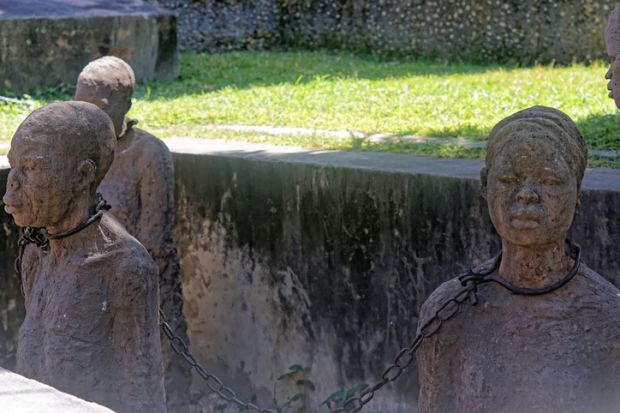All UK higher education institutions should examine how much they have profited from slavery, after it emerged that the University of Glasgow may have benefited by up to £200 million, a black studies scholar has said.
Last week, the Scottish university won acclaim for its decision to begin a programme of “reparative justice” following the publication of a study into its links with historical slavery.
The report found that while the university itself adopted a “clear anti-slavery position” during the 18th and 19th centuries, it also received several gifts from those connected to the trade.
The value of the gifts is estimated at between £16.8 million and £198 million in today’s prices, depending on whether donations from traders in tobacco, cotton and sugar indirectly linked to the slave trade are counted. Glasgow is to open a slavery studies centre and rename buildings in its efforts to make amends.
Its action has raised the issue of whether other British universities should assess how much they have benefited indirectly from slavery, as many US universities have done in recent years.
However this should not just concern the handful of UK universities that were founded before slavery was outlawed in 1807, said Nathaniel Adam Tobias Coleman, senior teaching associate in sociology at the University of Bristol and a member of its Centre for Black Humanities.
“All English universities are built out of colonial exploitation, which is broader than, but foundationally includes, colonial enslavement,” said Dr Coleman, who crosses out his surname to highlight that it was given to his family by slave owners.
For instance, the University of Birmingham received its royal charter in 1900, but was “built out of a college founded by the world’s largest maker of pens, whose success mass-producing the nibs and barrels of pens was not unrelated to the global monopoly Birmingham workshops had on the manufacture of locks, stocks and barrels of guns,” said Dr Coleman, also an honorary research fellow in history at Birmingham.
Moreover, the university’s founding father Joseph Chamberlain – the Liberal politician commemorated by its famous Old Joe clock tower – was a key figure of British imperial rule in Africa as minister for the colonies, said Dr Coleman.
The decision by Glasgow and Bristol to sign up to the international Universities Studying Slavery Group was, however, a “welcome step”, said Dr Coleman.
Scholars at Bristol are also exploring the history of its main benefactor, the Wills family, whose fortune derived from the tobacco trade but also supported abolition.
Kalwant Bhopal, professor of education and social justice at Birmingham, described Glasgow’s move as “encouraging”, adding that “too many universities seem unwilling to acknowledge they have profited from slave labour in the past and that this remains a troubling state of affairs for many people”.
“It is too easy for such institutions to dismiss their responsibilities both to address the inequalities of the past and also the present,” Professor Bhopal added.
However Robert Dingwall, professor of sociology at Nottingham Trent University, said that universities should be wary of acceding to such requests given that the “benefits of the slave trade are much more diffuse than the simple narrative of reparations implies”, with tribal leaders in Africa often sharing the benefits with Western traders.
“A focus on the European or American beneficiaries simply reflects the fact that they have deeper pockets today rather than a search for historical justice and accounting,” said Professor Dingwall.
Register to continue
Why register?
- Registration is free and only takes a moment
- Once registered, you can read 3 articles a month
- Sign up for our newsletter
Subscribe
Or subscribe for unlimited access to:
- Unlimited access to news, views, insights & reviews
- Digital editions
- Digital access to THE’s university and college rankings analysis
Already registered or a current subscriber? Login










